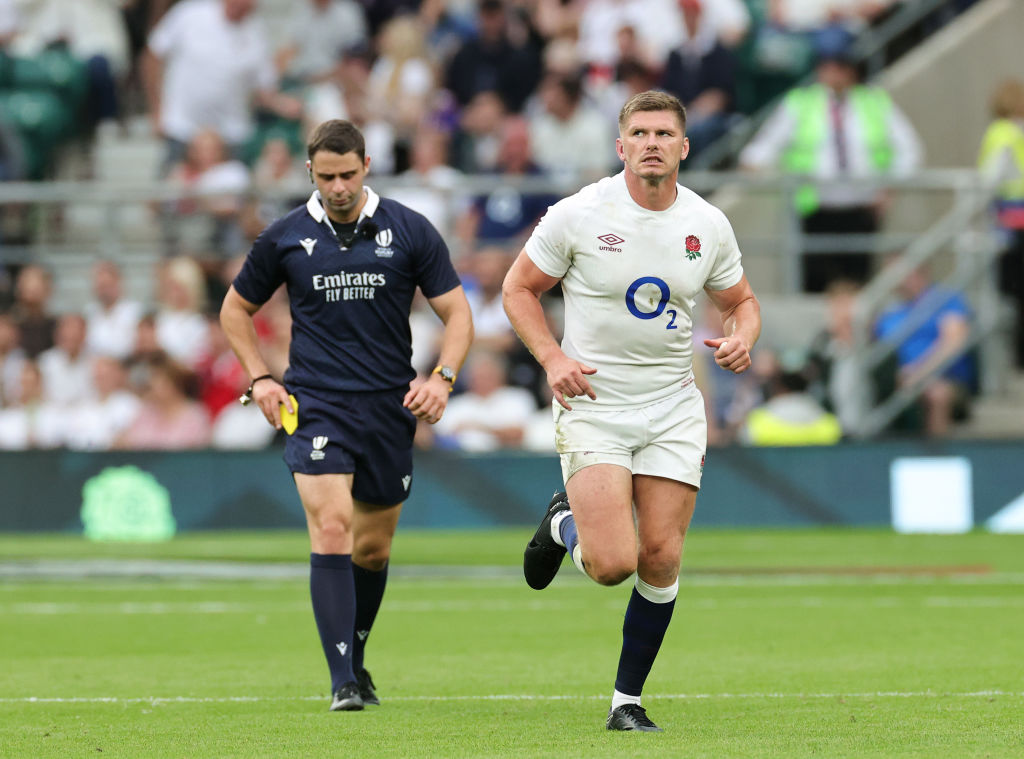Rugby’s disciplinary process betrays the very reason tough rules are in place

Utterly ridiculous. Hugely embarrassing. Total disaster. These are some of the thoughts that have crossed my mind this week when I should instead be getting excited for the Rugby World Cup next month.
Why? Because with the overturning of Owen Farrell’s red card from last Saturday, all of the sport’s decision makers have put the future of the game at risk.
This isn’t about England captain Farrell. The Saracens fly-half made a mistake and that’s that. It is about the process which could put parents off letting their children play the game in the future.
How on earth did rugby get here?
How on earth can the Rugby Football Union and World Rugby alike insist on below-waist tackling at grassroots level for the sake of our children’s health and welfare – a principle I support – when the challenge by Farrell, in which his shoulder made a forceful impact with Taine Basham’s chops, is seen as completely fine?
And what does it say about the shiny new “bunker” system brought in to ensure full-time television match officials have the resources to get the big decisions right, only for a panel made up of players who have been out of the game for decades to overturn the verdict of the professional?
It has brought rugby union into disrepute and the Six Nations’ refusal thus far to release the full details of how their disciplinary commission reached their verdict is contemptible.
They must be responsible for the panel decision and at least try to justify it to players, fans and parents alike.
Because when you’re taking your girl or boy to the local club to play on Sunday and those high, shoulder-centred tackles are allowed at the professional level, how are you going to feel when your kid is the victim of something similar?
And this is the problem the game now finds itself in. It has been a leader in recognising the issues that surround player welfare, short-term concussion and long-term brain injuries and have attempted to stamp it out with a number of measures which may be unpopular but are necessary.
Gone
All of that has gone now, because the captain of one of the biggest rugby nations in the world can get away with a red card few would have argued with – even fellow England No10 George Ford seemed to hint at his side getting away with one.
You need consistency across the entirety of the game to create safety, both physically and psychologically. Everyone needs confidence in the process to have confidence in the game’s future.
This week in the sport has infuriated me. It’s shown a lack of accountability to the future survival of the game, and a lack of bottle.
And I can understand why so many players from nations including Tonga, Argentina and Samoa are suggesting there’s a system of “one rule for them and another for everyone else” when players from smaller nations are copping bigger bans for a lot less.
And therein lies the issue. The system is broken, and it exposes the tensions within the sport among administrators, referees who feel undermined, players and fans.
World Rugby have until later today to appeal the decision, and I hope they do. So we can get back to an amazingly exciting Rugby World Cup if nothing else.
If my kids wanted to play rugby every week when they grow up, that’s something I’d support. But when I see tackles like that one on Saturday go unpunished because of a broken system, it does make me think twice about it.
Former England Sevens captain Ollie Phillips is the founder of Optimist Performance, experts in leadership development and behavioural change. Follow Ollie on Twitter and on LinkedIn.